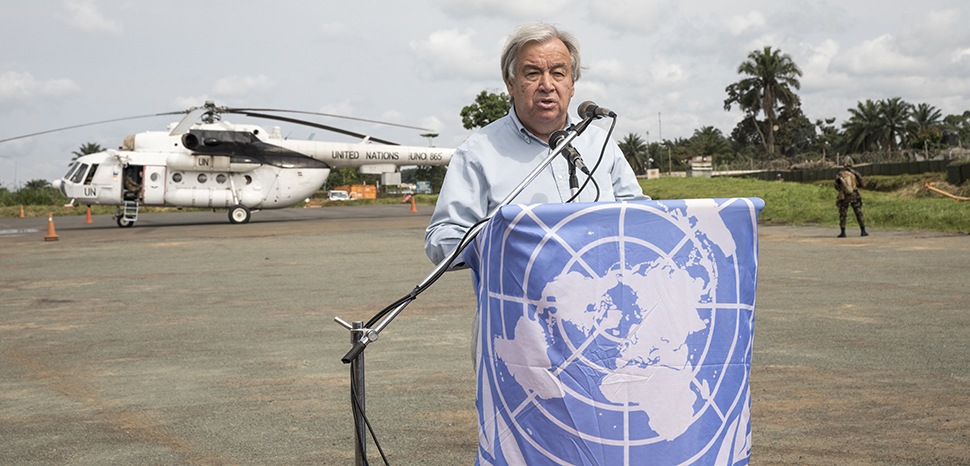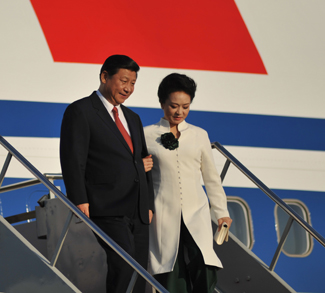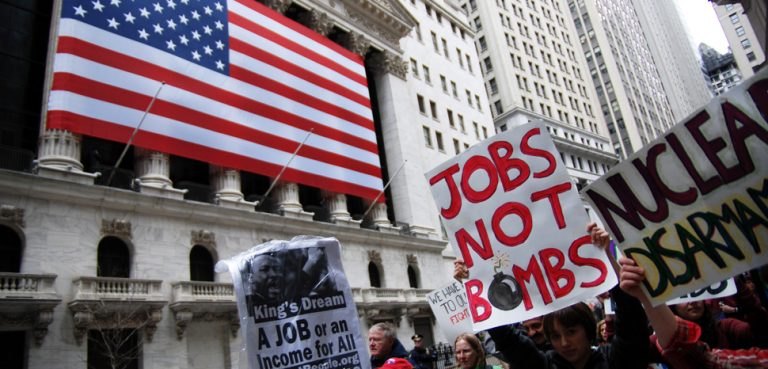The United Nations is suffering from its worst crisis in decades. It’s not its inability to resolve global crises, such as the current conflicts in Gaza, Ukraine, Myanmar, and Syria. Rather, the source of the crisis is internal, as critical personnel, from the Secretary-General to program officers in various UN agencies, have failed to communicate the UN’s increasingly complex mission to the public at large. While the problem extends across agencies and cuts across thematic areas, no one issue exemplifies the institution’s catastrophic inability to communicate more than climate change. Before representatives gathered in Dubai for the UN Climate Change Conference (COP28), Secretary-General António Guterres paid a visit to Antarctica, where in a series of social media posts and related press releases attempted to convey the risks associated with failure to address global temperature rise by taking a page from Las Vegas, noting that “what happens in Antarctica doesn’t stay in Antarctica,” unless leaders take drastic action.
Beside the hypocrisy of taking the long flight and the associated carbon emissions to record a video and receive a briefing from scientists, public communication at the UN, not just about climate change, but a host of issues, is ironically, not rooted in science. A vast body of research from social and political psychology, in effect, renders Guterres’ message on climate ineffective. First, a concept known as construal-level theory, where the further removed one is from an experience, the more it impacts their preferences and actions. In other words, people have to experience climate change themselves and have tangible means of creating change in order to take concrete actions. Second, the UN faces the twin challenges of public mistrust, not only in scientists and scientific information, which was prevalent during the COVID-19 pandemic, but also growing distrust in leaders.
Mitigating trust and building confidence in the United Nations on a range of issues also means communicating results, which rarely at the global level result in something tangible to the public. Because UN agencies often use different terminology, have different climate-related programming, and often have varying ideas of what results mean, the resulting communication fails to connect with the public at large. Part of the problem is a failure to understand a long-standing “theory of change” within development organizations, defined as how an intervention can lead to a specific development change, drawing on causal analysis. Getting results depends not only on understanding what contributes to change, but focusing on results rather than the inputs or activities. When this occurs, UN officials will often talk about high-level government officials or staff that attended a key meeting or the general purpose of that meeting, but not the end results or what will contribute to results over time.
Results-based communication consequently becomes less frequent, or the impact of those results at a country level fail to make their way into communications that can resonate with the general public at the international level. In the case of the United Nations Development Programme (UNDP), its 2022 Annual Report featured fragments of information with little to no context, such as where artificial intelligence and technology somehow will “increase smarter use of water and irrigation in Palestine” or “strengthen climate resilience of farmers in Egypt.” Aside from an array of statistics that suggested “record delivery” the reader is left wondering what to do with the information. Donors have started to take notice. The Multilateral Organisation Performance Assessment Network (MOPAN), which consists of 21 countries that regularly contribute to UNDP, including Australia, Japan, Denmark, Germany, and Canada, noted in a 2020 Assessment of UNDP that “[its results-based management (RBM) systems insufficiently steer and aggregate results at the global level”.
These issues are all compounded by the pace of modern communication. While the spectacle of a talking dinosaur voiced by actor Jack Black might draw some attention, it is of little to no use to the general public or to global leaders who are already well briefed on the complexities of climate inaction. On social media, senior UN officials are often followed by other UN employees. What is perceived internally as amplification is merely communication in a bubble.
The United Nations must quickly learn three critical lessons. First, results matter as they provide both credibility to donors and are essential in restoring public trust in the UN as an instrument of good. Second, public communication about complex issues need not come from Guterres, particularly from remote Antarctica, or through a ridiculous talking dinosaur. These first two lessons provide the basis for the third and final lesson: the UN must treat the beneficiaries of program results as equally as it does senior leadership. On climate change, the UN should let local people not only demonstrate the impacts of climate inaction, but communicate the impacts of program outputs directly. That can be easily done at any level and without the reputational damage of a trip to Antarctica that could have easily been prevented by a simple meeting on Zoom.
Mark S. Cogan is an Associate Professor of Peace and Conflict Studies at Kansai Gaidai University in Osaka, Japan. His research interests include Southeast Asia and the broader Indo-Pacific region, as well as security studies, peacebuilding, counter-terrorism, and human rights. He is a former communications specialist with the United Nations, serving in Southeast Asia, Sub-Saharan Africa, and the Middle East.
The views expressed in this article belong to the authors alone and do not necessarily reflect those of Geopoliticalmonitor.com.




